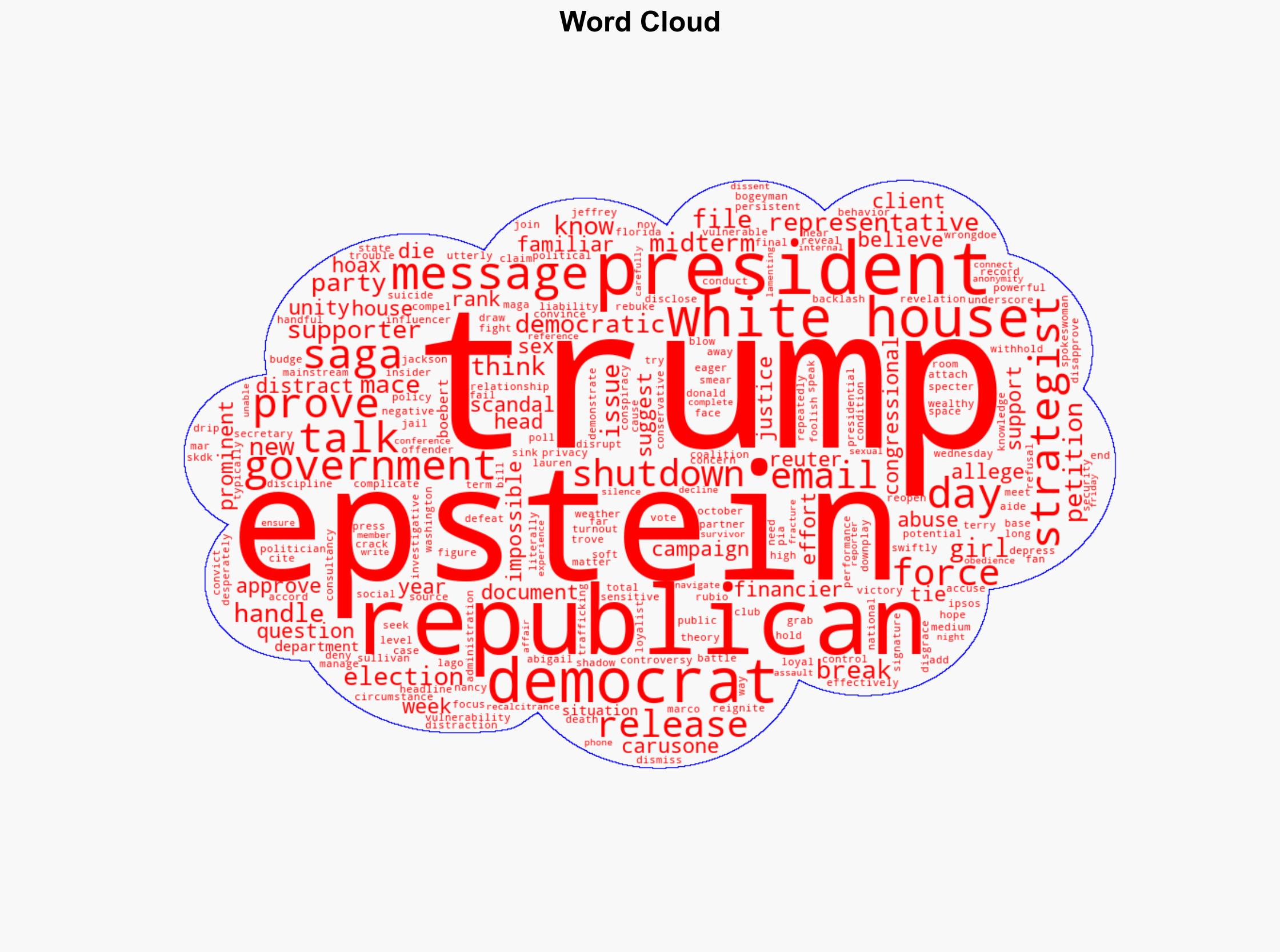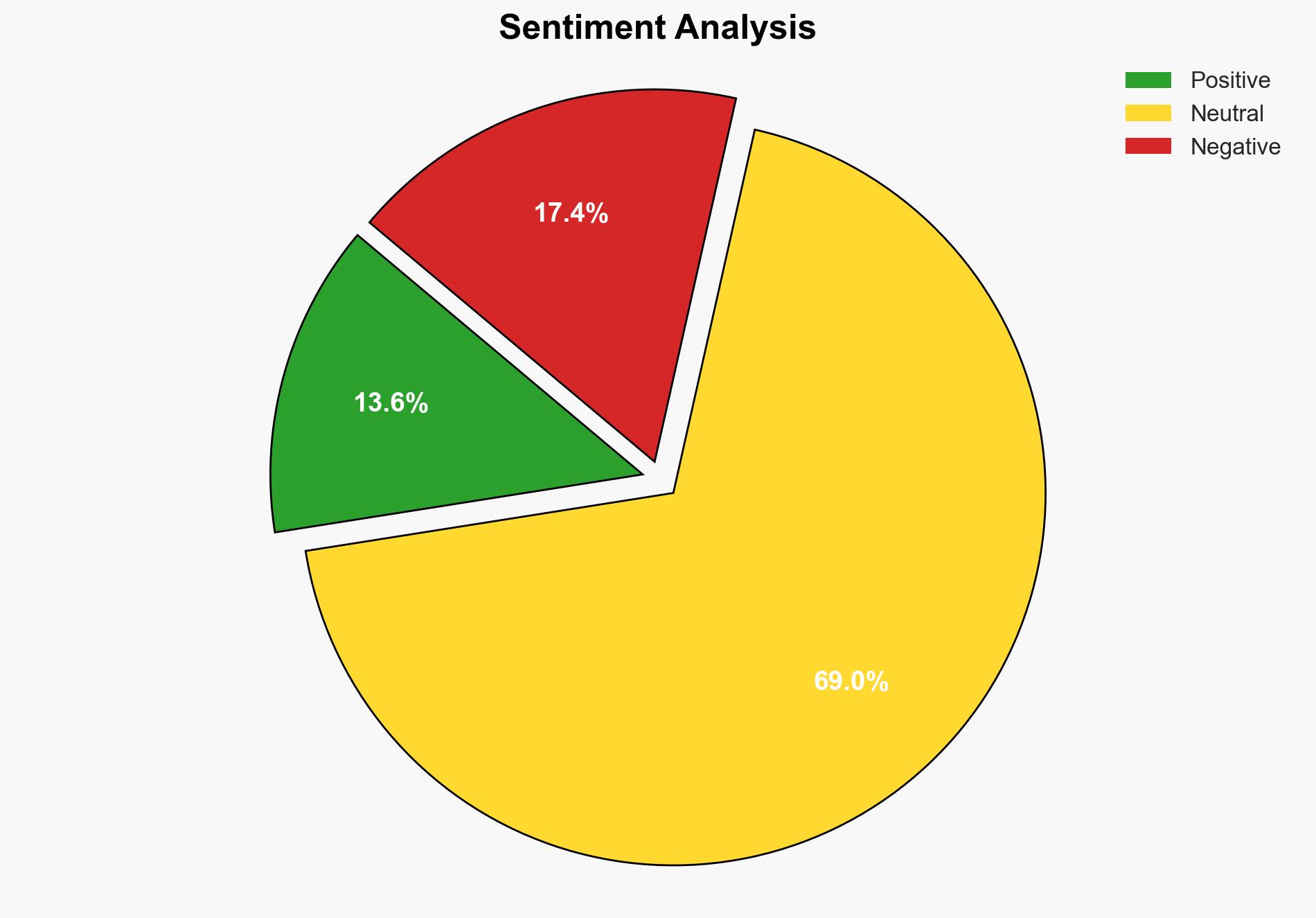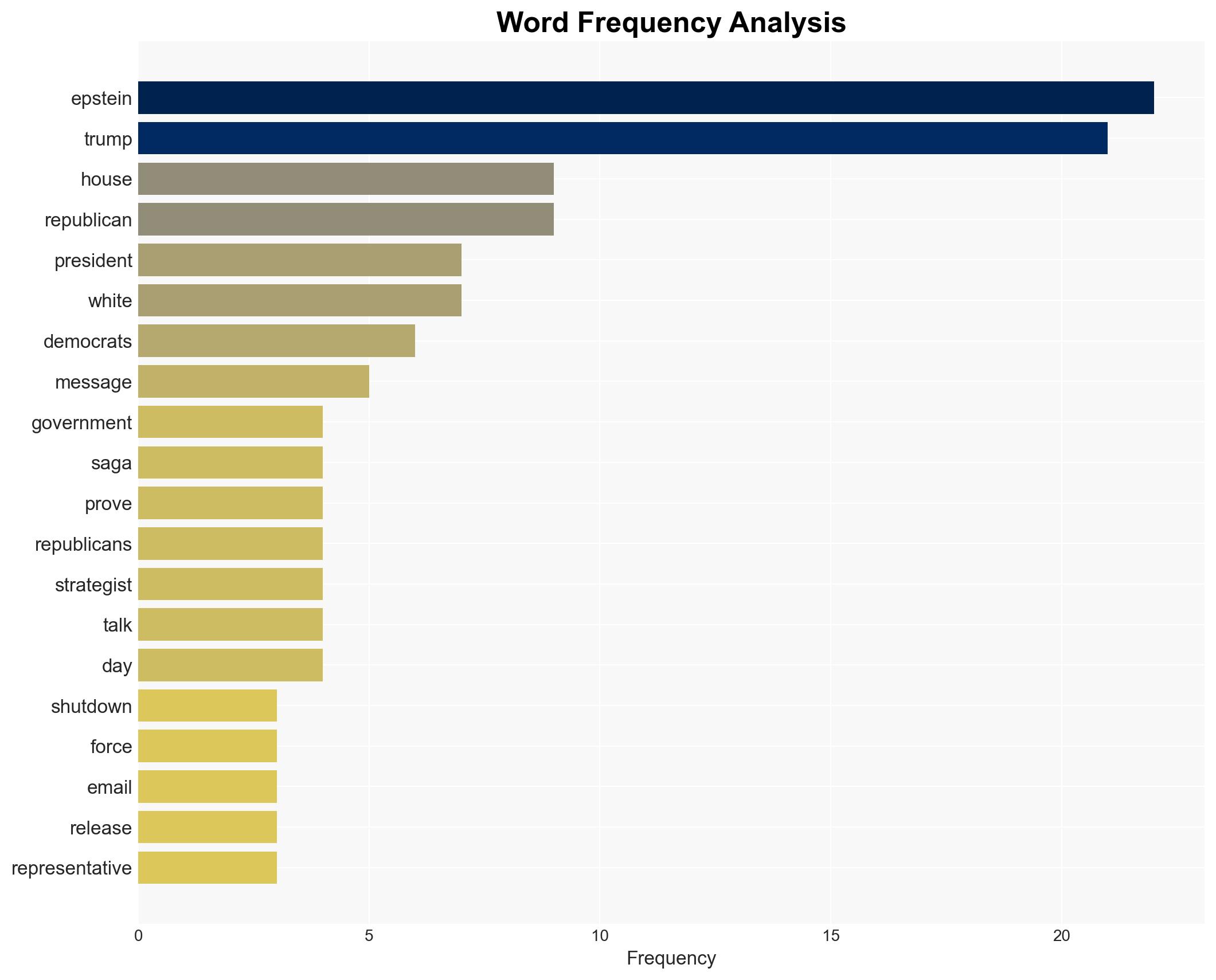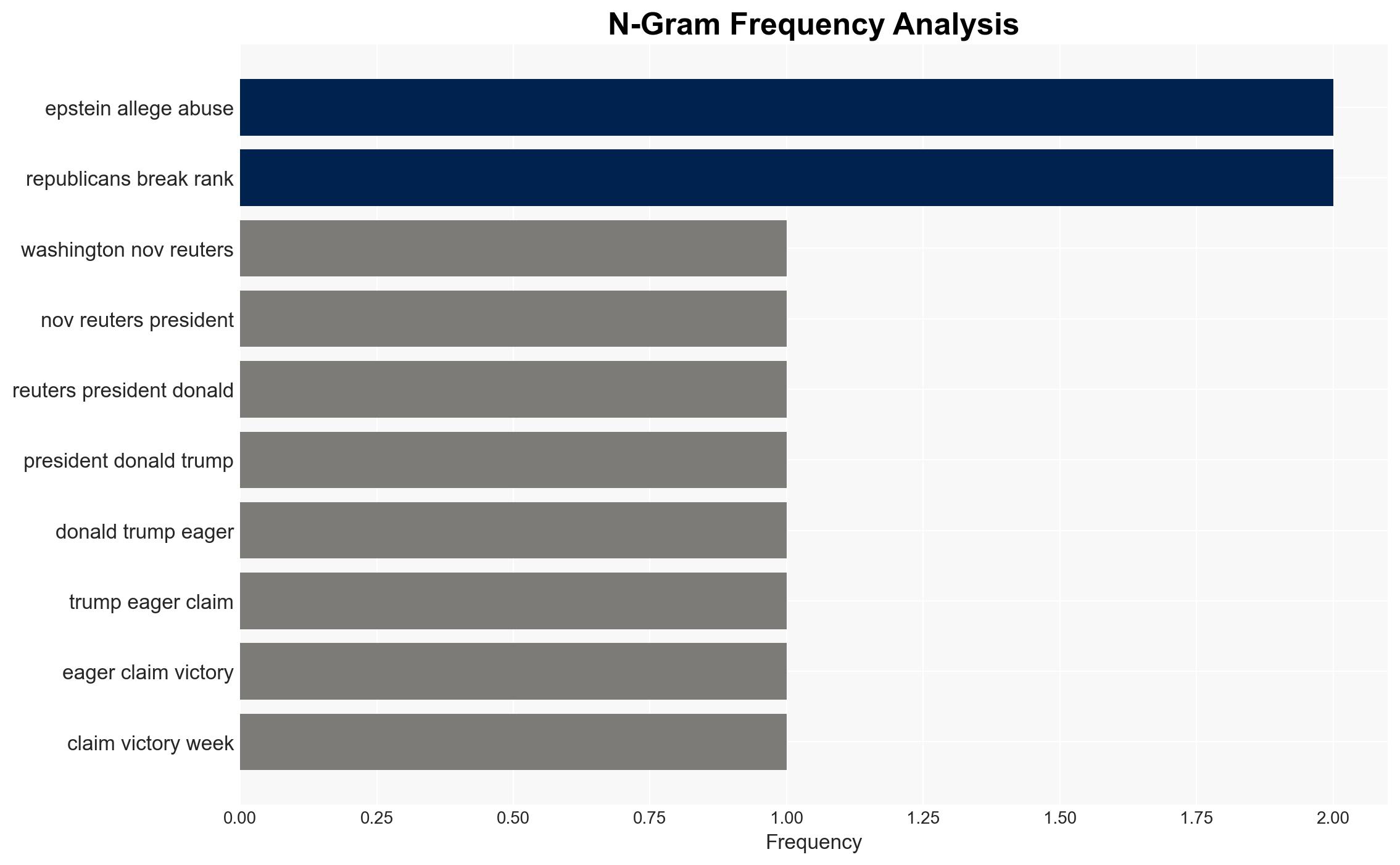Trump’s Teflon Tested As Jeffrey Epstein Saga Looms Over 2026 Campaign – HuffPost
Published on: 2025-11-16
AI-powered OSINT brief from verified open sources. Automated NLP signal extraction with human verification. See our Methodology and Why WorldWideWatchers.
Intelligence Report:
1. BLUF (Bottom Line Up Front)
The most supported hypothesis is that the Epstein saga will be a persistent vulnerability for Donald Trump, potentially affecting his 2026 campaign by weakening Republican unity and distracting from policy agendas. Confidence level: Moderate. Recommended action: Monitor developments closely, prepare strategic communication plans, and assess potential impacts on voter sentiment.
2. Competing Hypotheses
Hypothesis 1: The Epstein saga will significantly disrupt Trump’s 2026 campaign by eroding Republican unity and distracting from policy issues. This hypothesis is supported by evidence of internal Republican divisions and the potential for new revelations to emerge.
Hypothesis 2: The Epstein saga will have minimal impact on Trump’s campaign, as his core supporters remain loyal and dismissive of the allegations. This is supported by historical resilience to controversies and the White House’s narrative framing the issue as a smear campaign.
Hypothesis 1 is more likely due to the potential for ongoing media coverage and legal developments to sustain public interest and pressure, alongside signs of Republican dissent.
3. Key Assumptions and Red Flags
Assumptions: The assumption that new information will emerge from the Epstein files is critical. It is also assumed that media coverage will remain intense and that Republican dissent will grow.
Red Flags: Indicators of deception include coordinated messaging from Trump allies dismissing the issue and potential suppression of damaging information.
Bias Risks: Confirmation bias may lead to overestimating the impact of the saga based on past controversies.
4. Implications and Strategic Risks
The Epstein saga could lead to several strategic risks, including:
- Political: Fragmentation within the Republican Party, affecting electoral outcomes.
- Informational: Increased media scrutiny and public discourse, potentially affecting voter perceptions.
- Cyber: Potential for cyber operations targeting communications related to the saga.
Escalation scenarios include intensified partisan conflict and potential legal challenges involving Trump or his associates.
5. Recommendations and Outlook
- Develop a robust communication strategy to address and counteract negative narratives.
- Engage in outreach to maintain party unity and mitigate internal dissent.
- Monitor legal proceedings and media coverage for emerging threats or opportunities.
Best-case scenario: The issue fades with minimal impact on the campaign.
Worst-case scenario: Significant revelations lead to a loss of support and electoral setbacks.
Most-likely scenario: The saga remains a persistent but manageable challenge, with fluctuating impacts on voter sentiment.
6. Key Individuals and Entities
Donald Trump: Former President and central figure in the campaign.
Jeffrey Epstein: Deceased financier linked to allegations affecting Trump.
Abigail Jackson: White House spokeswoman involved in messaging.
Nancy Mace: Republican representative involved in petition efforts.
7. Thematic Tags
Structured Analytic Techniques Applied
- Cognitive Bias Stress Test: Expose and correct potential biases in assessments through red-teaming and structured challenge.
- Bayesian Scenario Modeling: Use probabilistic forecasting for conflict trajectories or escalation likelihood.
- Network Influence Mapping: Map relationships between state and non-state actors for impact estimation.
- Narrative Pattern Analysis: Deconstruct and track propaganda or influence narratives.
Explore more:
National Security Threats Briefs ·
Daily Summary ·
Support us
·





